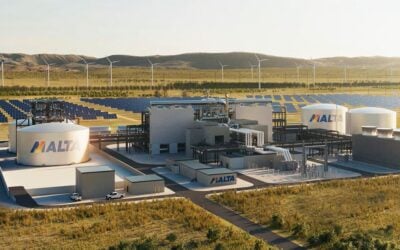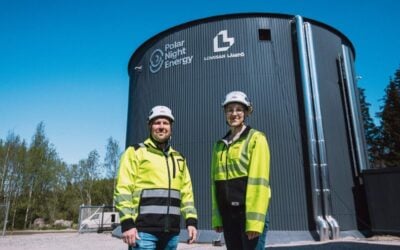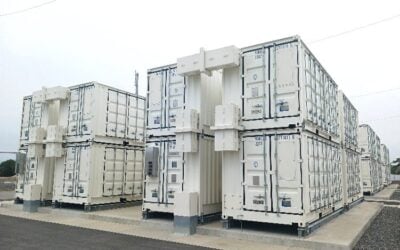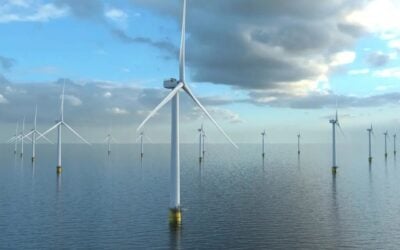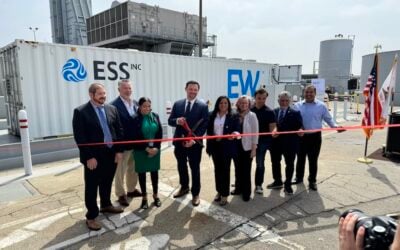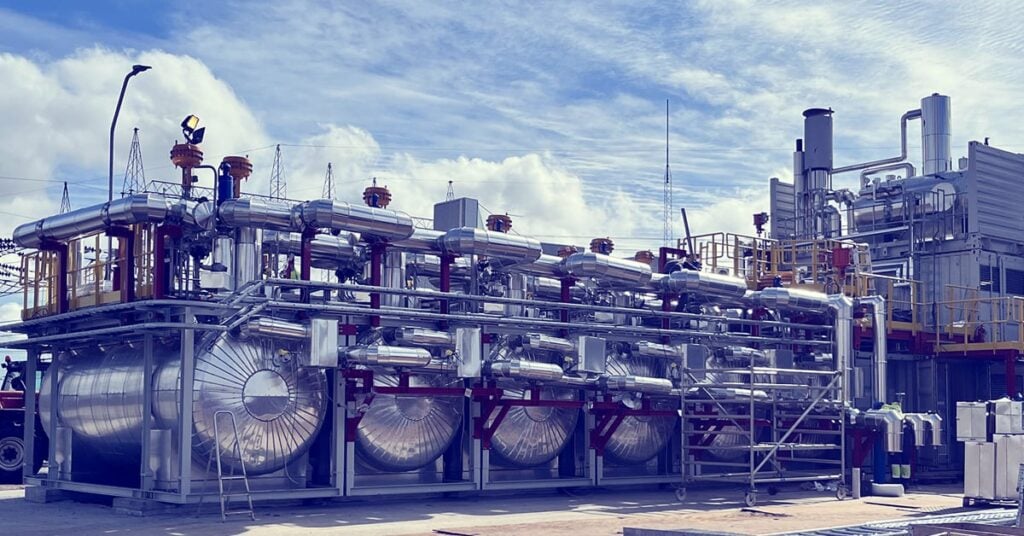
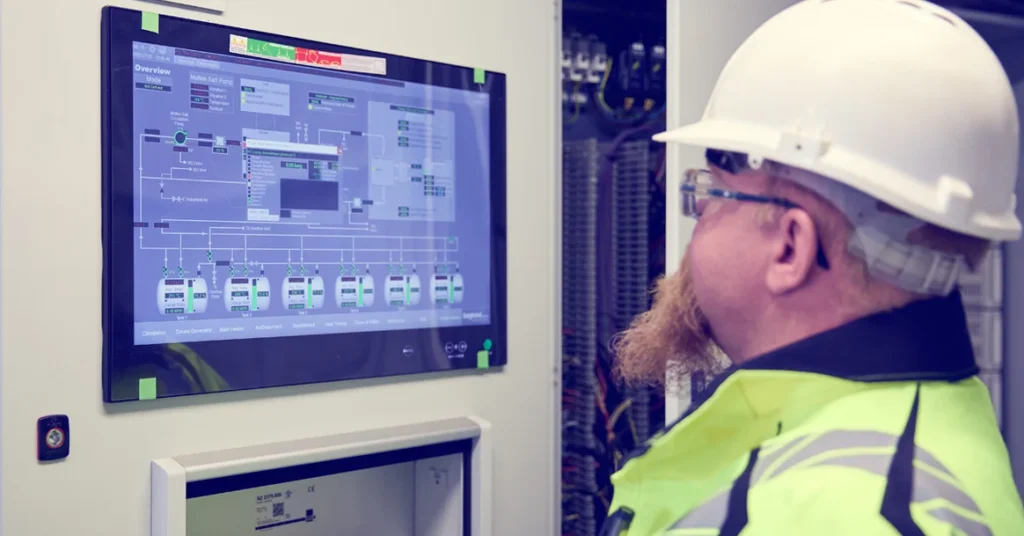
Thermal energy storage technology company Kyoto Group has begun operational testing of a 4MW molten salt-based power-to-heat system in Denmark.
The system, which has an energy storage capacity of 18MWh, is based on the Norway-headquartered startup’s proprietary technology Heatcube. It has been deployed at the site of Nordjylland Power Station, a coal-fired combined heat and power (CHP) plant in the northern Danish municipality of Aalborg.
Enjoy 12 months of exclusive analysis
- Regular insight and analysis of the industry’s biggest developments
- In-depth interviews with the industry’s leading figures
- Annual digital subscription to the PV Tech Power journal
- Discounts on Solar Media’s portfolio of events, in-person and virtual
Heatcube uses electricity to store thermal energy by heating molten salt to 415°C and then creating steam. Although the heat could also be used for industrial processes, and Kyoto Group is targeting the industrial market too, in the Nordjylland project the energy storage system outputs to the local district heating network.
It marks the first commercial contract for Kyoto Group, which only built its first pilot in 2020. It has signed a couple of letters of intent (LOIs) to potentially deploy others including a 88MWh project in Spain with an undisclosed owner of cogeneration facilities, and another with a corrugated cardboard manufacturer.
In June, Energy-Storage.news reported that Spanish energy company Iberdrola made a small investment worth €3 million (US$3.26 million) into the startup that gave Iberdrola the right to put a director on Kyoto Group’s board, as well as 12.8% control of capital.
The customer for the Danish project is the local municipally-owned electricity supplier to Aalborg, which owns the power plant. Kyoto Group is leasing the use of the storage system, through an agreement signed in November 2021 with the plant’s operating entity, Nordjyllandsværket A/S.
Kyoto Group said last week (11 August) that a successful Initial Operations Test (IOT) has been carried out by the technology provider with Nordjyllandsværket, which it said showed the Heatcube and its components and processes including flow heater, salt circulation, steam generator and safety functionality were working properly.
The system has been commercially handed over to the customer, meaning Nordjyllandsværket takes over operation. The lease’s terms have therefore also been activated.
Two months of fine-tuning the Heatcube’s operation now begins, with Kyoto Group training the customers’ staff to operate it and conduct a full performance test.
“This achievement not only displays the effectiveness of our technology but also paves the way for a future where industrial process heat is sourced from clean renewable electricity, enabling the industry to finally decarbonise,” Camilla Nilsson, CEO of Kyoto Group, said.
The potential for thermal energy storage to contribute significantly to the transition away from fossil fuels has been highlighted by groups including the Long Duration Energy Storage Council (LDES Council). Heating and cooling account for about half of global greenhouse gas (GHG) emissions, and industrial heat for about two-thirds of that.
The technologies and applications from different providers vary. A few days ago, Energy-Storage.news reported on funding raised by two thermal storage startups, Kraftblock in Germany and MGA Thermal in Australia to scale up their offerings.
Both of those companies make a type of composite block made of materials designed to retain very high temperature heat for several hours. Conversely, last week Energy-Storage.news also reported that Nostromo is negotiating with the US government for a possible US$176 million loan – Nostromo makes a drop-in replacement for chillers in commercial air conditioning units.
Molten silicon demonstration unit in Australia
In related news, 1414 Degrees, an Australian company with a thermal storage tech based on molten silicon – the company name refers to the melting point of silicon – said a demonstration unit has been commissioned.
The SiBox Demonstration Module (SDM) that has just been commissioned is also designed to convert electricity to heat and then to produce steam. 1414 Degrees said it can output steam at temperatures between 700°C and 850°C for 6-13 hours of continuous output.
The company now begins a 12-month period of continuous cycling and discharge testing to complete its validation phase. Natural gas producer Woodside’s energy technology arm partnered up on construction and testing, including financial support, and the latest milestone 1414 Degrees has reached now means Woodside will evaluate further potential funding into the technology.
1414 Degrees is also involved in a novel large-scale project combining concentrated solar power (CSP), solar PV and grid-scale battery storage with its molten silicon storage technology, which has been on a rocky development journey.
In April 2022, the project hit the buffers when a joint venture (JV) between China’s State Grid Corporation and Singapore Power pulled out of investing. However in June that year, CSP and solar thermal company Vast Solar stepped in to form a JV which could yet save the project, Aurora, which is in South Australia.
Aurora could include a 20MW CSP plant, 140MW battery energy storage system (BESS) and a 70MW solar PV array together with a thermal storage plant.

